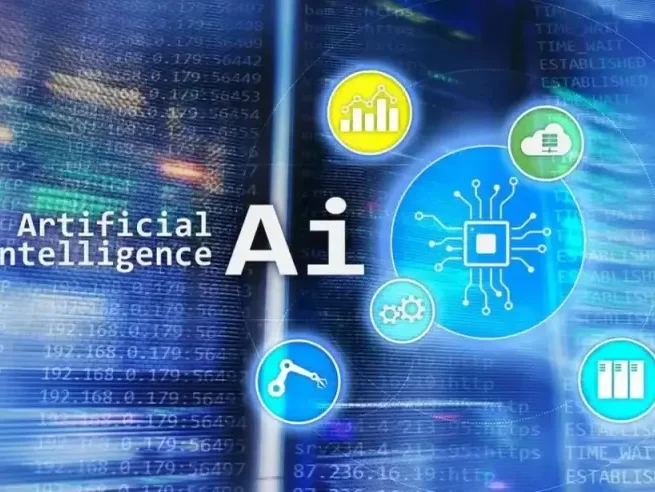The fast-growing field of technology is full of exciting and innovative career opportunities. Artificial intelligence (AI) engineering is a fast-growing industry. It can provide you with new challenges and exciting opportunities for professional development. This article will discuss how to become an AI engineer, what skills and qualifications they require, and how to start a career in this field.
Who is an AI engineer?
AI engineers are responsible for designing, programming, and training the complex networks of algorithms that make up AI. This role requires combined experience in software development, programming, data science, and data processing. AI developers identify and obtain data from various sources to develop and test machine learning models. They use application programming interfaces (APIs) or inline code to create and implement AI-based applications.
How can you become an AI engineer?
The versatility of AI education benefits anyone who enters the industry. There are countless paths to take to become a senior AI specialist. At the same time, most traditional industry entries tend to follow a similar four-stage route.
- Step 1: get a bachelor’s degree in information technology, computer science, or a related field. Future artificial intelligence professionals may earn a bachelor’s degree in data science, computer science, or information technology; such education provides students with a broad understanding of programming principles and data logic required to advance further.
- Step 2: get an additional certification: programs and majors that do not require intensive programming training can be supplemented by certification courses in a programming language. It will build the technical knowledge needed to become a top AI expert.
- Step 3: Pursue a postgraduate degree: while not always required, earning a master’s degree in a related field help you develop your skills, improve your employability as an AI engineer, and increase your earning potential. It gives you in-depth knowledge of the subject and niche technical skills. To enroll in an engineering course, you may need to take a GATE (Graduate Engineering Aptitude Test).
- Step 4: Once you have gained enough experience in this field, you can apply for jobs in artificial intelligence, machine learning, and deep learning. There are many job profiles in this field, such as data scientist, AI scientist, machine learning engineer, etc. You may start as an entry-level employee and then develop your skills to advance to higher positions.
According to Payscale.com, people with AI tech skills earn an average of $125,000 yearly. Such an amount may vary depending on the AI scientist’s location, experience, and specific roles and responsibilities.
List of responsibilities of an AI engineer
AI engineers play an essential role in organizations using AI. They outline the AI strategy and identify problems to be solved with AI. They are responsible for building the AI development and production infrastructure and implementing them. Here are some specific tasks and responsibilities of an AI engineer:
- Creation and management of AI development and production infrastructure.
- Perform statistical analysis and interpret results to guide and optimize an organization’s decision-making process.
- Automate your AI infrastructure for your data science team.
- Build AI models from scratch and help product managers and other stakeholders with analysis and implementation.
- Transform machine learning models into APIs that can be integrated with other applications.
- Collaborate across teams to help with AI adoption and best practices.
AI engineers deal with AI researchers, cloud engineers, machine learning scientists, data scientists, programmers, and business analysts. They usually use the Python programming language. AI engineers also use platforms such as Google Vertex AI, Amazon Web Services, and GitHub Copilot.
Skills to become an AI engineer
When we have detailed the responsibilities of an AI engineer, let’s discuss the complex and social skills that are usually required in most jobs. However, it is essential to note that the necessary skills may vary depending on the specific position and industry, but we will consider the main aspects.

Technical skills
Becoming an artificial intelligence engineer requires a primary computer, information technology (IT), and math skills, which are critical to managing artificial intelligence programs. Here’s how you may get started with artificial intelligence in 2022:
- Programming skills: programming is the first skill required to become an AI engineer. To be well versed in artificial intelligence, learning programming languages such as Python, R, Java, and C++ is essential to create and implement models.
- Linear algebra, probability, and statistics: you must have detailed knowledge of linear algebra, probability, and statistics to understand and implement different AI models, including Hidden Markov Models, Naive Bayes Models, Gaussian Mixed Models, and Linear Discriminant Analysis.
- Spark and big data technologies: AI engineers work with large amounts of data, streaming or real-time production data in terabytes or petabytes. For data like this, these engineers need to be aware of Spark and other big data technologies to make sense of them.
- Algorithms and frameworks: comprehending how machine learning algorithms such as linear regression, KNN, Naive Bayes, Support Vector Machines, and others work will help you implement machine learning models quickly. In addition, you must understand deep learning algorithms to create AI models with unstructured data.
Soft skills
The difference between successful engineers and those who struggle is their soft skills. While an AI engineer is primarily a technical job, communicating effectively with others, solving problems, organizing one’s time effectively, and collaborating with others are critical factors in determining whether a project is successfully completed and implemented.
- Communication skills: AI engineers must communicate with a wide range of people with different levels of competence. Let’s say your organization asks you to build and deliver a new AI model to every department within the company. You may want to brush up on your written and verbal communication skills to communicate complex thoughts and concepts to a broad audience.
- Ability to solve problems: to be a successful data scientist or software engineer, you must be able to think creatively and solve problems. Because AI seeks to solve problems as they arise in real time, it requires developing critical and creative problem-solving skills.
- Time management: AI engineers must balance the needs of multiple stakeholders with the need to conduct research, organize and plan projects, build software, and test it thoroughly. Effectively managing your time is essential to being a productive team member.
- Teamwork: members of the AI and IT communities often collaborate. Working successfully and productively in a team is a valuable skill. You may need to work with small and large groups to achieve complex goals. You can become a successful team member by considering the opinions of others and offering your own through clear and concise communication.
- Business intelligence: Most problems associated with running an organization can be solved through successful AI initiatives. You can turn your technology ideas into productive business ventures if you have business intelligence.
You can acquire and enhance most of these abilities by earning a bachelor’s degree. Still, you can explore additional opportunities and learn more to expand your talents in this area if you wish.
Key areas requiring AI engineers
Knowledge in the field of artificial intelligence is helpful in many areas. Therefore, AI programmers can find key roles, advancement opportunities, and leadership positions in any industry they are interested in. This flexibility and usefulness make artificial intelligence an Important component in most areas:
- Marketing: engineers create AI programs to collect consumer data, define trends, engage with customers, and deliver ads that viewers respond to.
- Public relations: in this area, AI architects create programs that scan the Internet for hot topics and analyze the impressions received from events, products, and services in the press.
- Healthcare: artificial intelligence programs help in all aspects of healthcare. Properly trained AIs help diagnose diseases, create patient care plans, schedule appointments, and optimize patient care.
- Military: thanks to AI, military intelligence officers analyze satellite images faster, protect data and infrastructure, and conduct operations.
- Finance: programs utilize artificial intelligence to identify and analyze data to make investment decisions, responsible lending practices, and credit scoring.
AI engineers solve problems by bridging the gap between human thinking and computer results. They perform various roles in data mining, analysis, research, design, and programming. The use of AI could grow exponentially in the future, and AI engineers could have ample career opportunities. Machine learning and artificial intelligence are developing specialties that significantly impact a company’s overall success.
